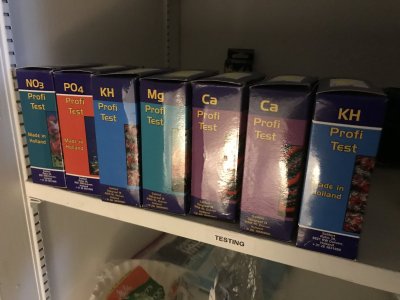- Joined
- May 6, 2016
- Messages
- 1,366
- Reaction score
- 2,175
I test nearly every day right now as I work to dial in my switch from water changes to dosing. But I also don't think I chase numbers. Kinda just found a few of the big numbers my tank was running while doing water changes and sought to maintain them while dosing. Admittedly, I don't even know my phosphate level. Probably the next number I should learn. But while I don't find testing all that enjoyable, and I'm sure I'm not alone with this, I find tinkering with my tank fun. Testing the tank and maintaining target numbers is just one way to do that.For those of you that concentrate on the numbers so closely, is it an enjoyable part of the hobby for you? I'm genuinely curious because I hate testing and trying to tune into numbers but only because I find it boring. I leave my tank be and respond if something seems to not be well. I'm definitely not saying my way is better, it works for me and it's just how I enjoy the hobby. I see people post spread sheets and formulas and exact parameters and stress when they are .0X off and it makes me cringe because I wouldn't enjoy the hobby that way. So my question is for those of you that like to test frequently and keep exacting water results, do you do it because you enjoy that part of it or are you afraid the tank will fail if you don't do it that way?


















